This post may contain affiliate links. Read more at our disclosure policy.
The Ultimate Guide for How to Grill Chicken (Skin-On or Skinless), perfectly every single time. Follow these simple steps for a great way to get big flavor, crispy skin, and juicy texture every time (on any piece of chicken)! Stop overcooking chicken and learn the tips and tricks pros use for juicy chicken breasts, thighs, and legs.
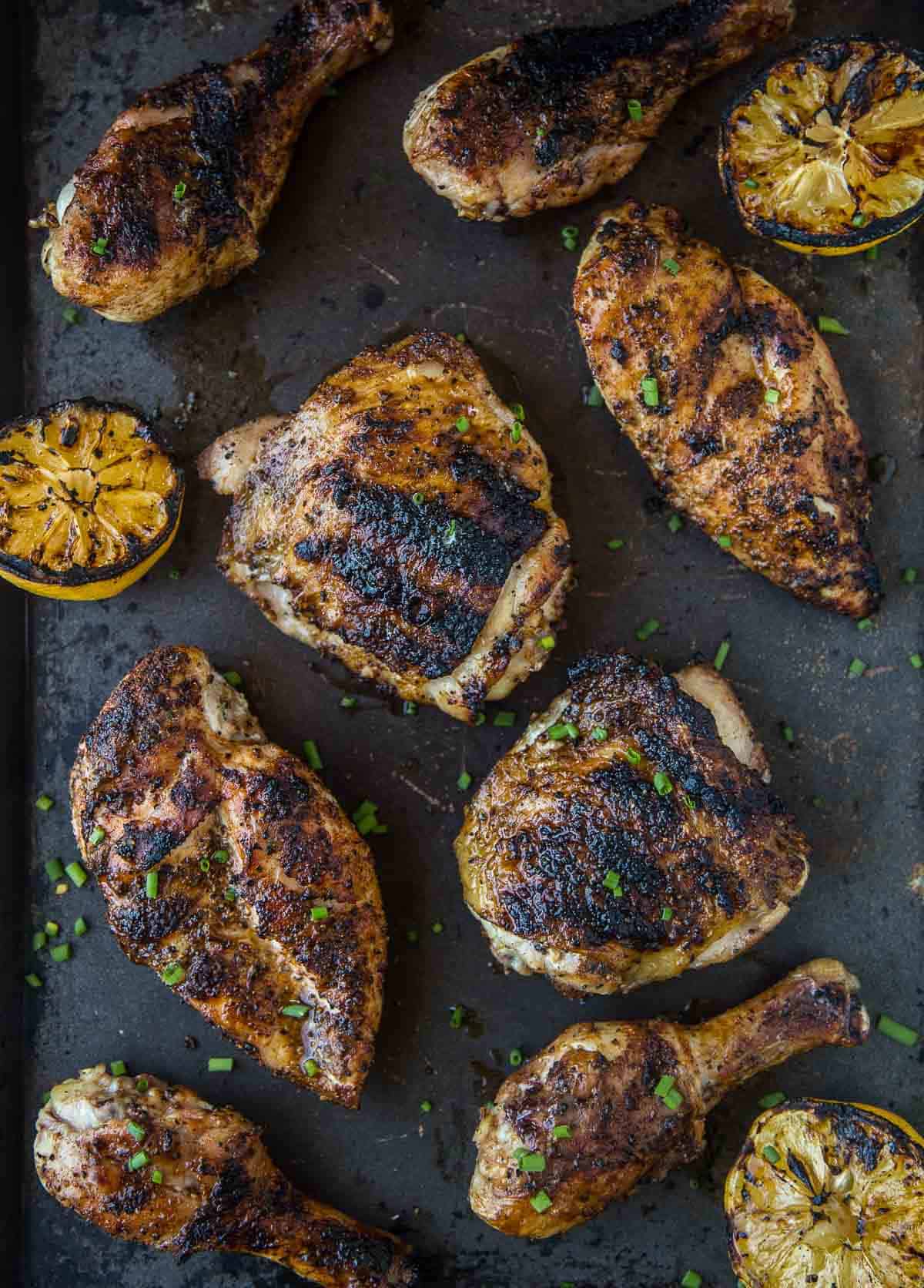
Recipe Highlights
- To avoid overcooked chicken (dry) cook to the proper internal temperature using two-zone cooking method.
- For enhanced flavor you can use a chicken marinade or finish with a barbecue sauce glaze.
- For a grilled whole chicken be sure to follow our guide on how to spatchcock chicken and follow the same method.
Grilling chicken can be a little intimidating for people. Too often people are afraid of under-cooking chicken, which instead results in overcooked, dry, and boring chicken.
With the right seasoning, techniques, and an understanding of how to grill chicken properly, you can make fantastic flavorful chicken every time, with any cut of chicken.
Plus, we provide some great resources about understanding the right internal cooking temperature for chicken so it’s safe to eat, juicy, tender, and delicious.
Table of Contents
Ingredients
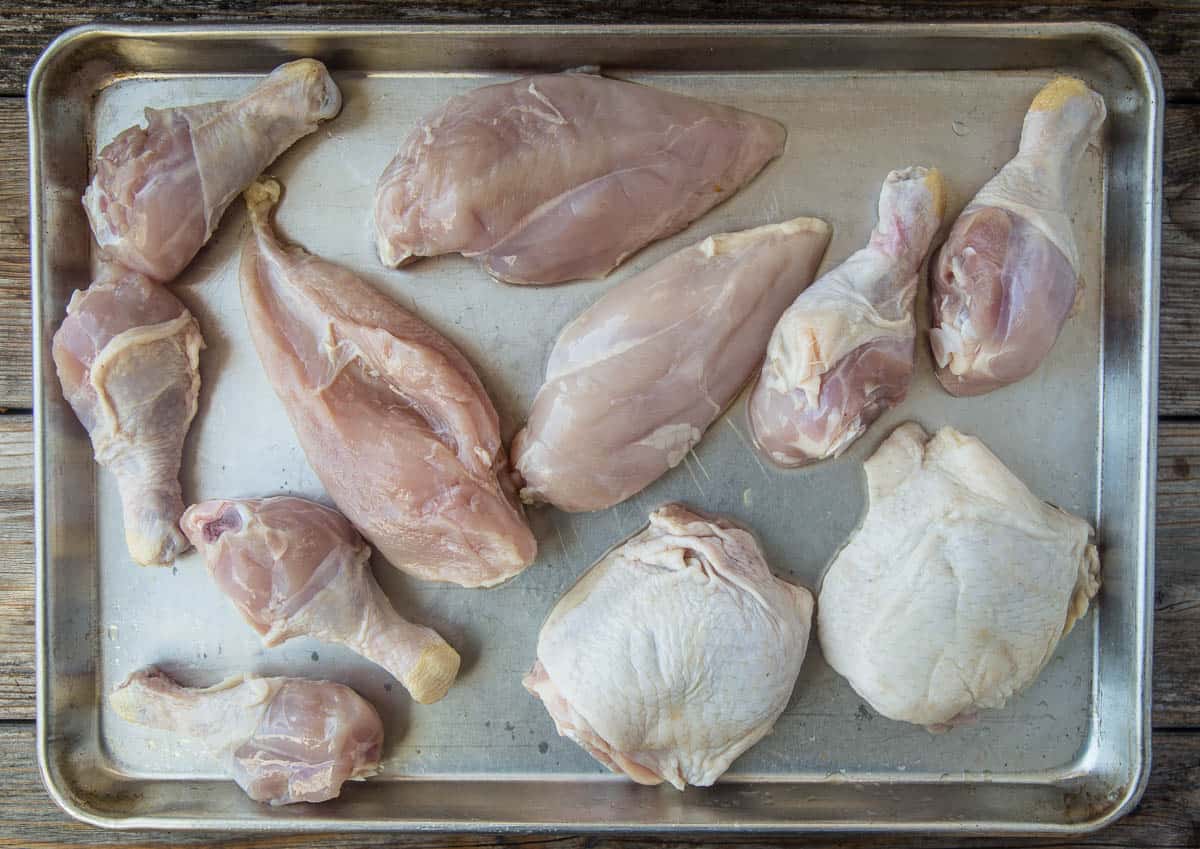
- Skin-On Chicken – The skin will get crispy if you grill it over direct heat and then finish over indirect heat. You can also grill skinless chicken if you prefer. This method works for any cut of chicken!
- Binder – You can use a light amount of olive oil to help the seasoning stick to the chicken.
- Seasoning – We like a chicken seasoning that contains no sugar in it for a more savory flavor.
- Glaze – An optional finish for the chicken is a BBQ Glaze using your favorite BBQ sauce recipe. Add the glaze at the end of the cooking process to avoid burning. Our two favorites are our Sweet BBQ Sauce and our Red Wine BBQ Sauce.
Best Part Of Chicken For Grilling
Our favorite parts of the chicken to grill are thighs and legs. But sometimes you want to grill up the chicken breast too. The key is to know when they are done and remove them from the grill at the right internal temperature.
Each part of the chicken will take different amounts of time to coo, so either buy the same cut or be prepared to rotate the different cuts around and pull them off when they are done.

- Breast: The chicken breast is dense and with typically very little fat. It can be purchased bone-in or boneless, and also skinless or skin-on. When grilling we prefer bone-in and skin-on.
- Thigh: The chicken thigh is the portion of the chicken between the leg and the body. It carries a lot of weight and tends to have a lot of tendons and intramuscular connective tissue. It’s delicious grilled or smoked but should be cooked to a higher internal temperature for the perfect texture.
- Leg: The chicken leg portion of the chicken grounds the chicken and has the most weight on it. One end will have all the meat where it connects with the thigh, while the other end is bone and tendons. It also is better if cooked to a higher internal temperature than a breast. We have a great recipe for grilled chicken lollipops which uses a Frenched version of the chicken leg.
Butcher’s Tip
The least expensive way to buy chicken is to purchase a whole chicken, which can then be butchered at home into individual pieces. Or you can purchase the chicken already cut into parts. The less the butcher has had to cut and prepare for the case, generally speaking, the cheaper the per-pound price.
Preparation and Seasoning
We are using our savory chicken seasoning, which has no sugar in it. Sugar can cause burning, especially brown sugar, when cooked over a high heat source.
Therefore, we do not use added sugar in our poultry season, which is meant for high-heat grilling. Apply olive oil to the chicken pieces and then liberally apply the seasoning. For more flavor, season the day prior so it can dry brine. There is no reason to allow the meat to come to room temperature before grilling.
Grilling Method
In this recipe, we are using charcoal on our kettle grill. We use a two-zone grilling method so we can have direct grilling over charcoal and then finish the skin-on chicken over the indirect side.
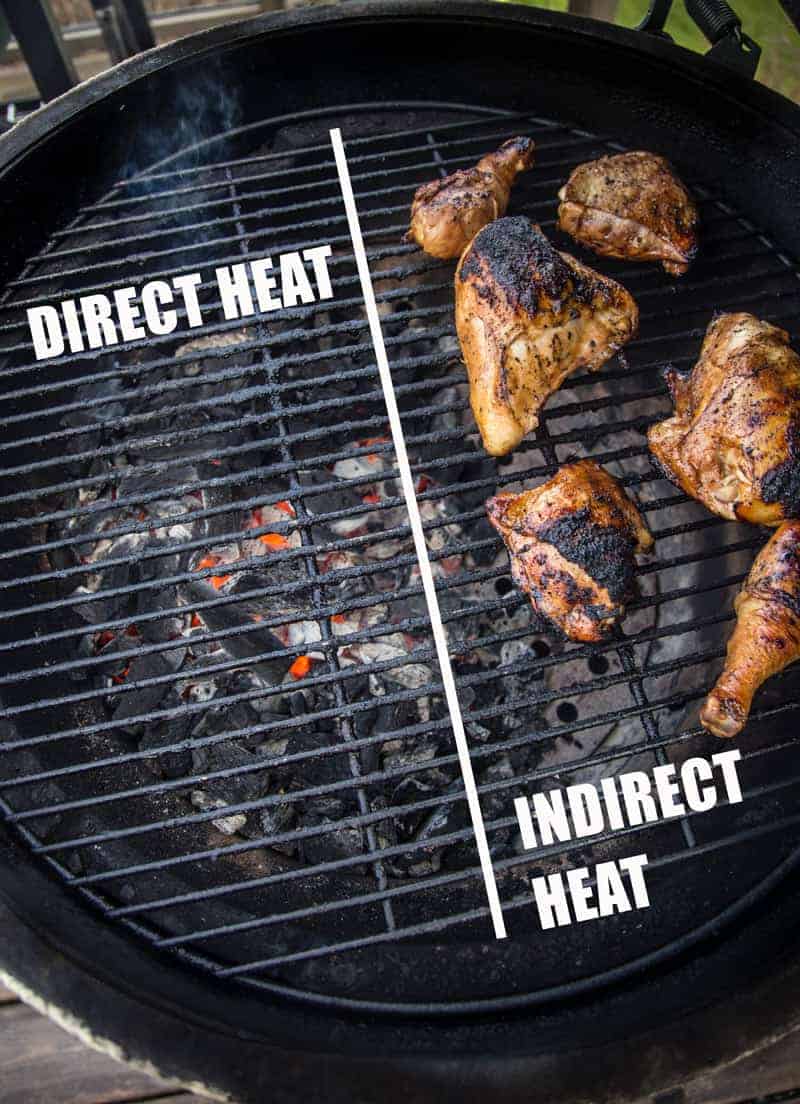
Why does the direct indirect method matter? As high heat sears the chicken, the fat from the chicken will render out faster and drip into the coals. This can cause flare-ups that send large flames and potentially burn the chicken, creating crusty dark burnt skin, while still having an under-cooked interior. After searing the chicken to your desired crust, moving the chicken to the indirect side of the grill prevents the fat from causing flare-ups and is more like roasting in an oven.
Have a gas grill? Follow our directions on how to grill chicken on a gas grill. Unlike a charcoal grill, you can lower the direct flame.
How to Grill Chicken
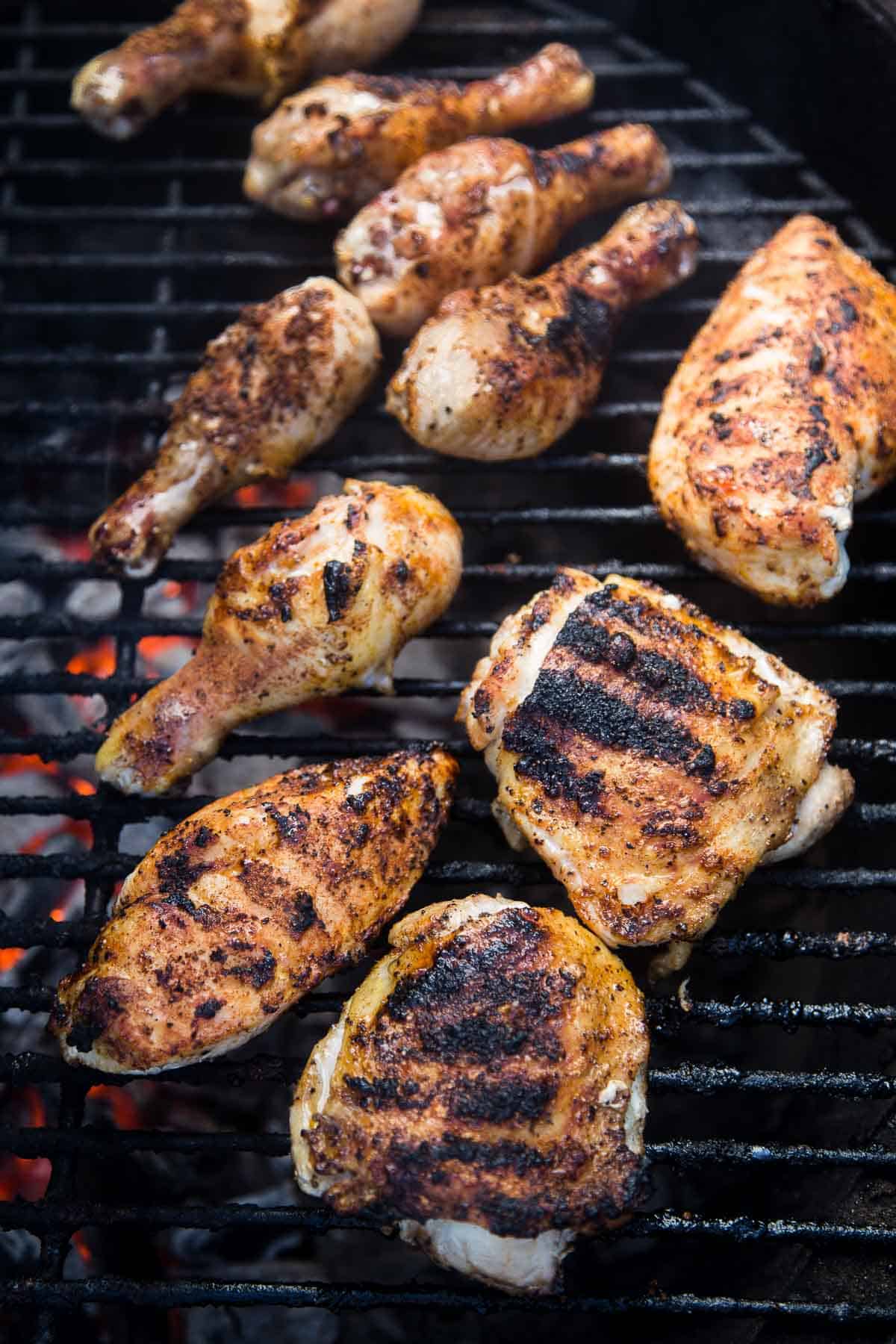
- Prepare the grill for two-zone cooking, targeting the internal temperature of the grill at 475 to 500 degrees Fahrenheit. If using a gas grill that would be medium-high heat. We prefer lump charcoal over briquettes for the combination of heat and flavor.
- Place chicken, skin side down, over the direct heat for the initial sear. Grill chicken breast for 5 minutes or until you see nice grill marks. Legs and thighs may take less time as they are smaller. Flip and grill chicken pieces for an additional 5 minutes over direct heat until you get nice grill marks.
- Move the chicken to indirect heat when each piece is ready, close the lid, and finish grilling until it reaches the proper internal temperature for the chicken, which for us is 155 degrees Fahrenheit for the breast and 175 degrees for the legs and thighs. Let it rest to allow carry-over cooking to finish cooking.
The grilling time will vary based on the thickness of the chicken breasts, and the size of the thighs and legs, which is why it’s best to cook to temperature and not time using a good instant-read thermometer.
Related Article: The perfect internal temperature of cooked chicken.
The other thing to consider is that chicken thighs and drumsticks actually have a better texture if you take them to an internal temperature of 170 – 175 degrees F. This allows for a better texture because more of the intramuscular connective tissue breaks down.
Tools
In order to get the most accurate temperature you need an instant-read thermometer. This is one of the key grill tools needed for anyone cooking outdoors (or indoors for that matter). Our go-to instant-read thermometer for chicken is the Thermoworks Thermapen One or the less expensive ThermoPop. The probe is easy to use, it is virtually instant, and most important, we can slowly move the probe through the chicken so we see the range of temperature and pull at just the right time.
You also want a good set of long tongs so you don’t burn your hands and arms over the direct heat.
How To Take The Temperature of Chicken
As you pass the thermometer through the chicken, you are always using the lowest temperature as the target, and making sure to insert the probe into the center of the thickest part of the meat, but not touching the bone.
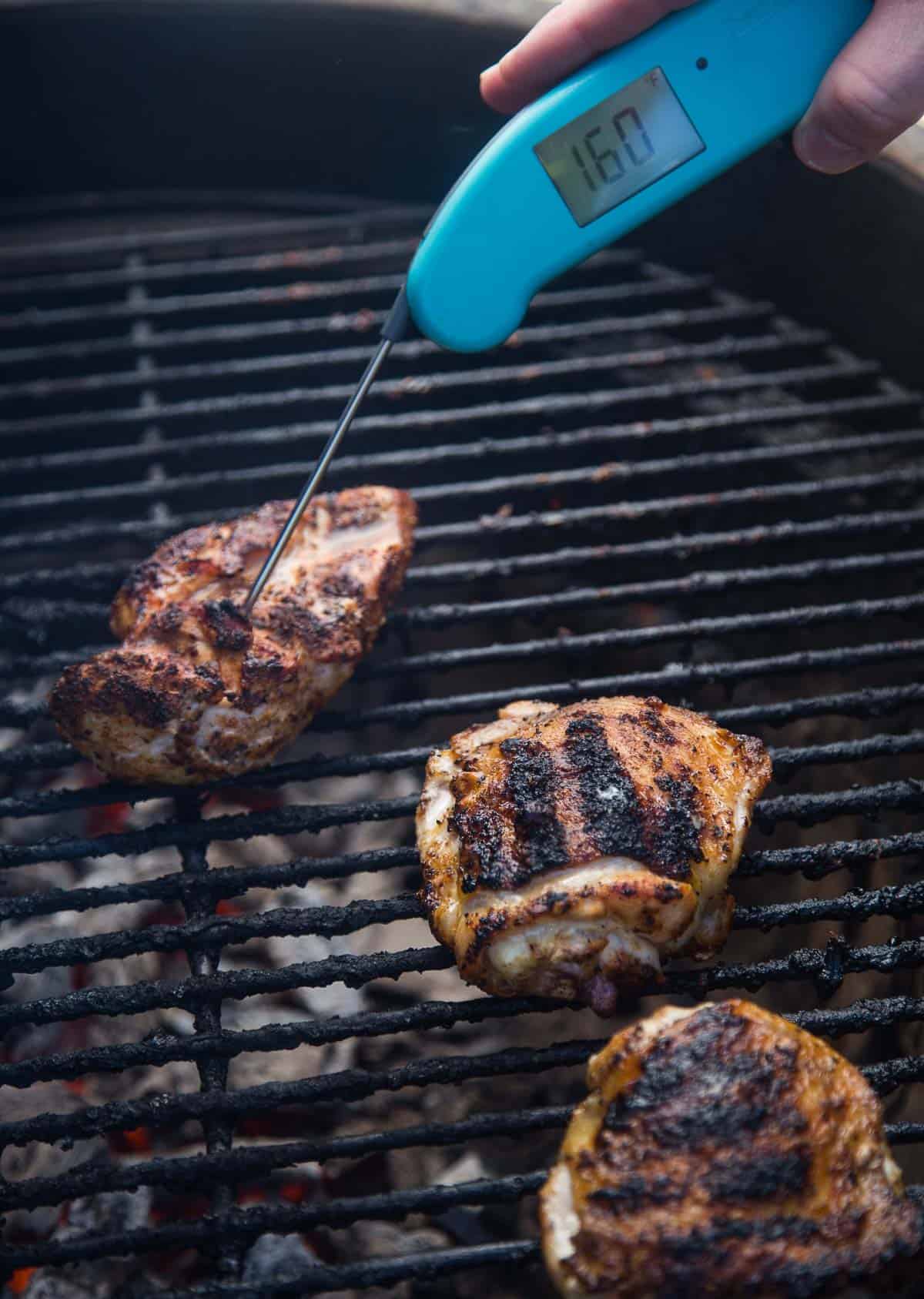
For an entire roaster chicken you will take the temperature in multiple locations for the most accurate read.
Would you like to save this?
Sauces and Glazes
Glazes are simply a barbecue sauce added while cooking meat. Sauces or glazes should be added at the end of the grilling. Why? If adding a glaze or a sauce to the chicken too early, the crispy skin will absorb the liquid and get gummy and over direct heat, it has a higher chance of burning. If you want really crispy chicken – then don’t add a glaze, just dip it in the sauce while you eat.
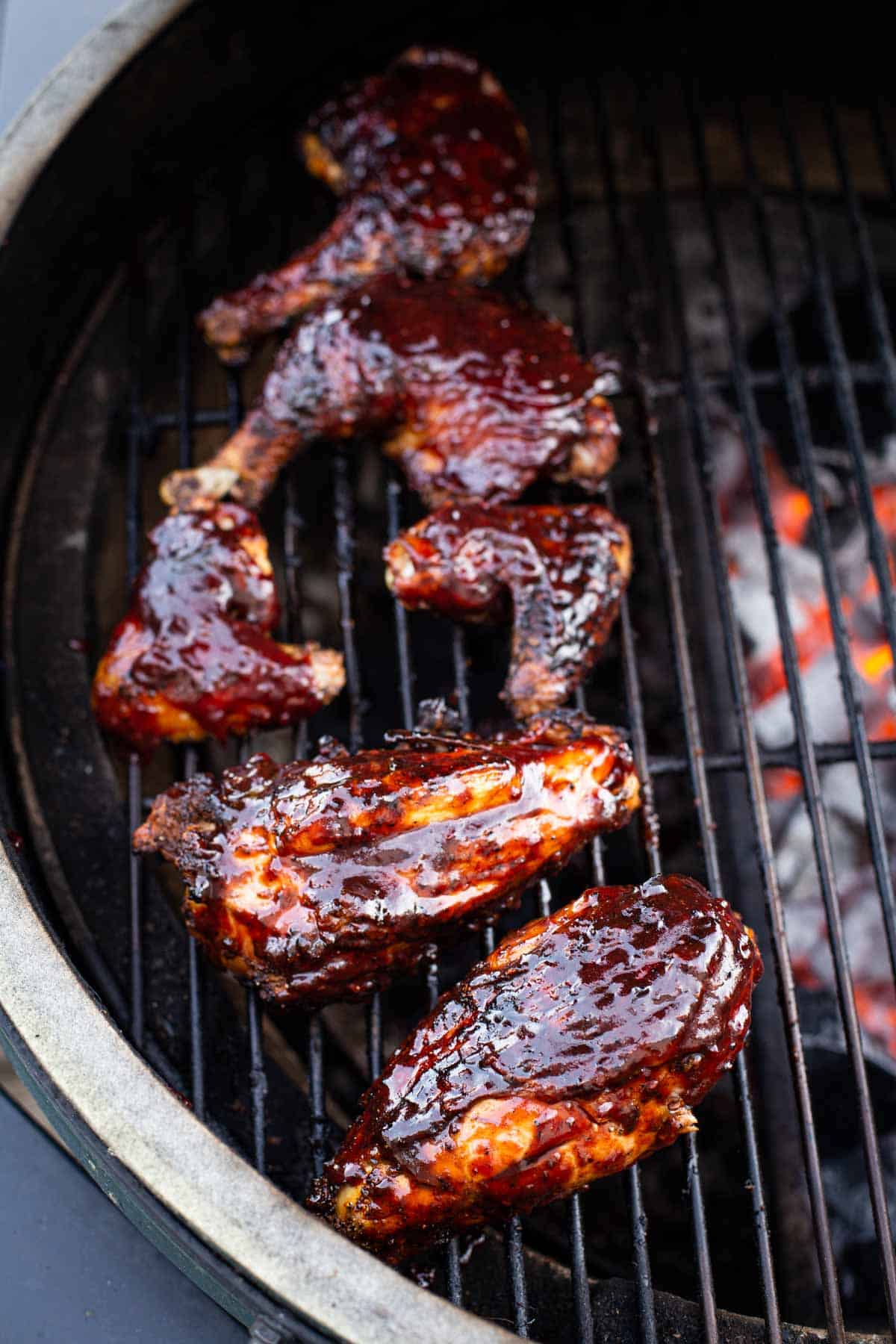
To maintain the crispy skin and bite, add the glaze in two steps. First when the chicken is at 150 degrees F for the breast and 170 degrees for the thighs and legs. Then glaze a second time just after you pull the chicken off the grill and let it rest. The sauce will firm up and still keep the texture of the skin crispy.
Frequently Asked Questions
First, start with a clean grill grate. Apply a high heat oil to the grill if you would like prior to cooking or heating. As the meat sears, it will reach a sweet spot where it will lift right off the grate. Dirty grates cause sticking, so after every cook, get into the habit of brushing the grill off.
Marinating chicken is personal choice and can add additional flavor. It can be as simple as Italian dressing, or a homemade chicken marinade. Either way, the same cooking technique applies. When marinating chicken, we recommend marinating anywhere from 3-6 hours, using smaller cuts (like cubed chicken pieces, our pounded chicken breasts).
Bone-in chicken holds everything together and, for chicken breasts, acts as a heat shield (acting as a barrier between the meat and the heat source). When possible, we prefer to cook bone-in chicken. If you are opting for boneless, just be aware the meat will likely cook faster than bone-in.
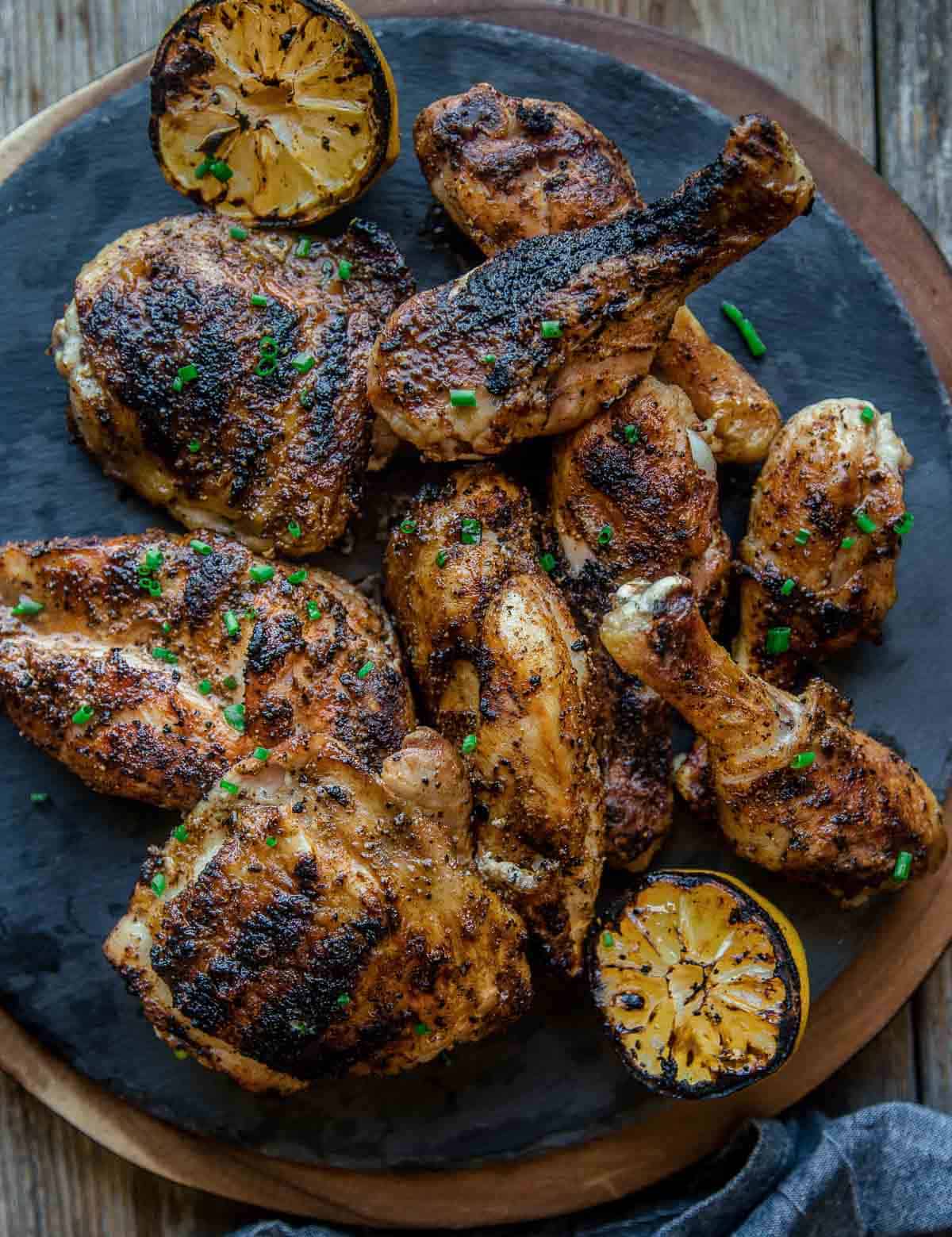
Grilled Chicken Ideas
Pizza Recipes
BBQ Chicken Pizza (in the oven or grill)
BBQ Chicken Recipes
Chipotle Honey Marinade With Chicken Tacos
BBQ Chicken Recipes
Apricot Glazed Grilled Chicken Recipe
Homemade BBQ Sauce Recipes
Grilled Chicken with Cherry Chipotle BBQ Sauce
Tried this recipe? Give us a star rating and we would love to see! Mention @vindulge or use the hashtag #vindulge on all the social media handles. And consider subscribing to our newsletter where we drop all our favorite ideas and inspirations every week.
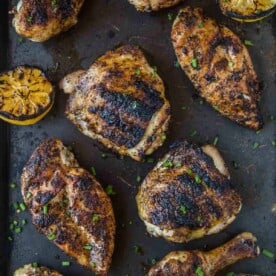
How To Grill Perfect Chicken
Equipment
Ingredients
- ¼ cup chicken seasoning
- 2 tablespoons extra virgin olive oil
- 2 pieces chicken breasts, bone-in, (If boneless then use a kitchen mallet to even out)
- 2 pieces chicken thighs
- 2 pieces chicken legs
Instructions
- Season: Prior to grilling, pat dry the chicken, coat with olive oil and season liberally. Cover and place back into fridge until ready to grill. For best results, do this one day in advance
- Prep Grill: Prepare the grill for direct/indirect method of cooking, and remove the chicken from the refrigerator. Target 475 to 500 degrees F in the cooking chamber.
- Grill Direct: Place the chicken pieces over direct heat. Cook each side for approximately 5 minutes, or until you see the desired crust, and then move to indirect heat to finish cooking, turning each piece occasionally.
- Grill Indirect: Continue cooking until the internal temperature of the breast is 155 degrees F as measured on an instant read thermometer. Pull and let rest for 15 minutes (the internal temperature of the chicken will continue to rise another 5 degrees).For thighs and legs cook until the internal temperature reaches 175 degrees. Rest 10 minutes then serve.
- Serve: Serve and enjoy.
Video
Notes
Nutrition
Nutrition information is automatically calculated, so should only be used as an approximation.
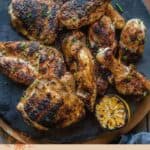
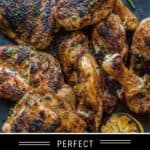
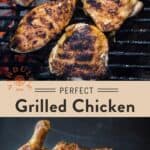
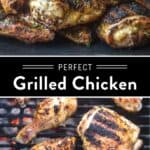
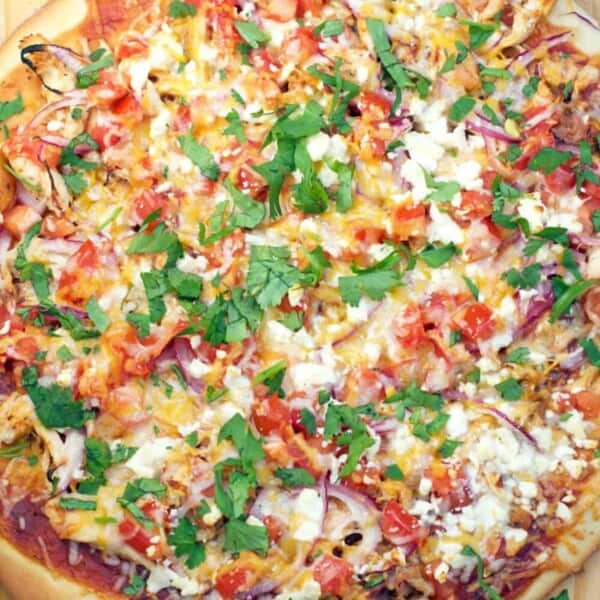
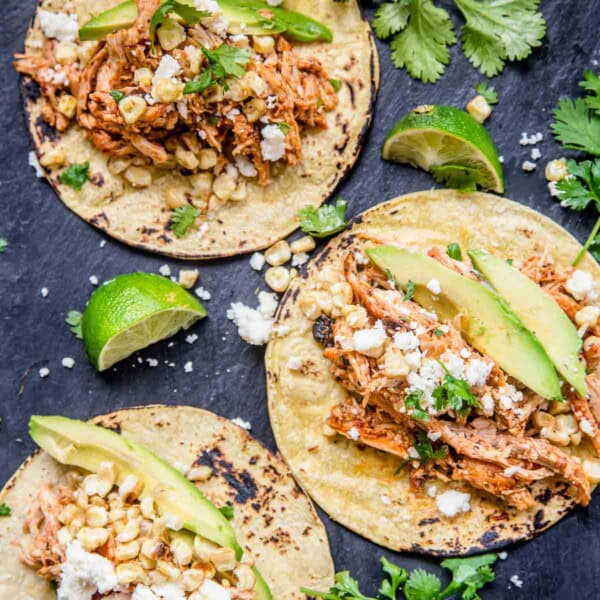
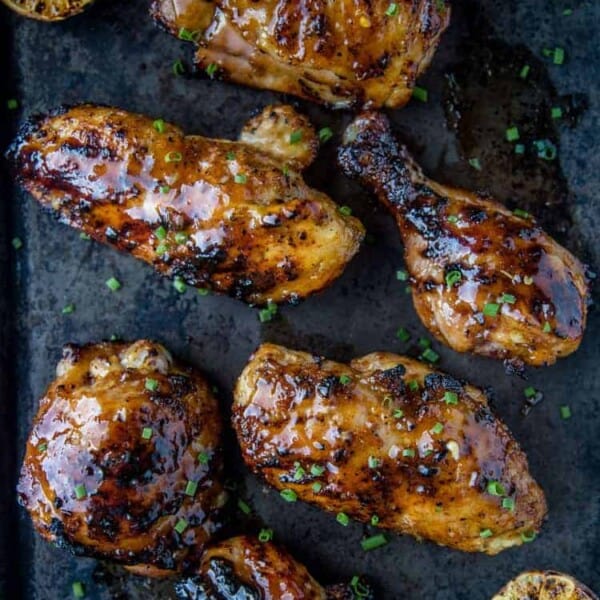
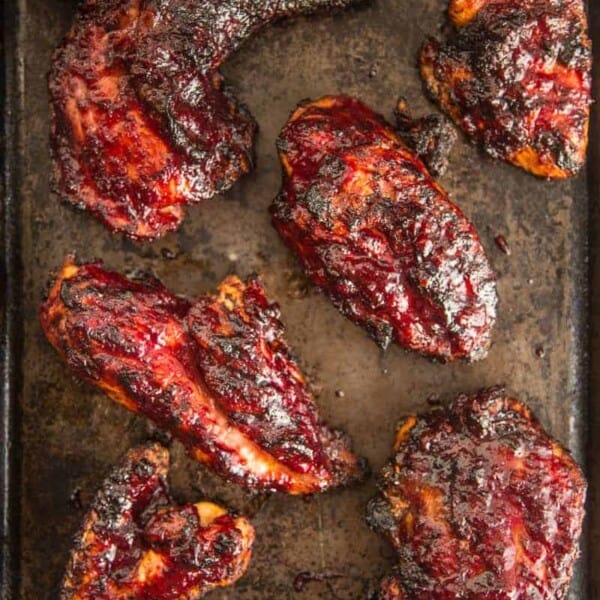


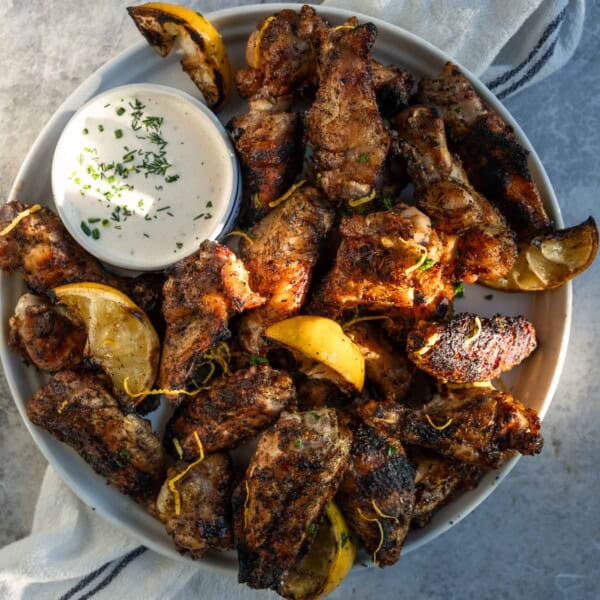
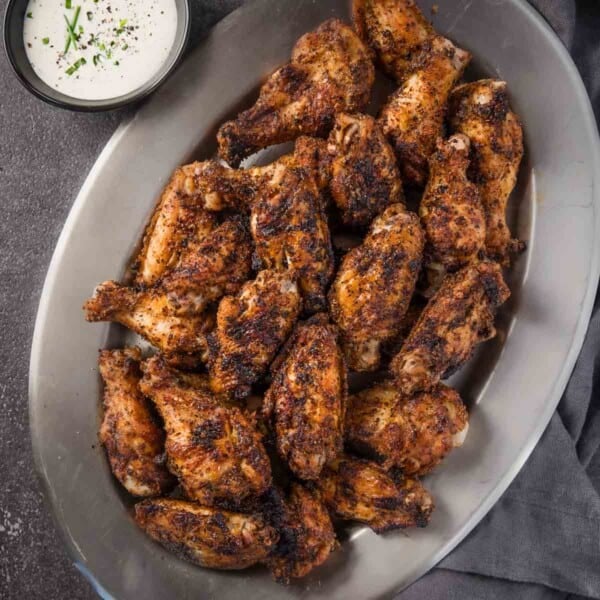
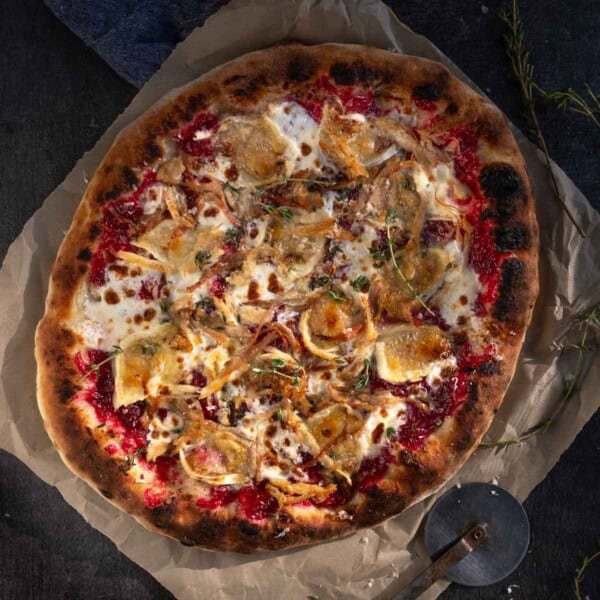
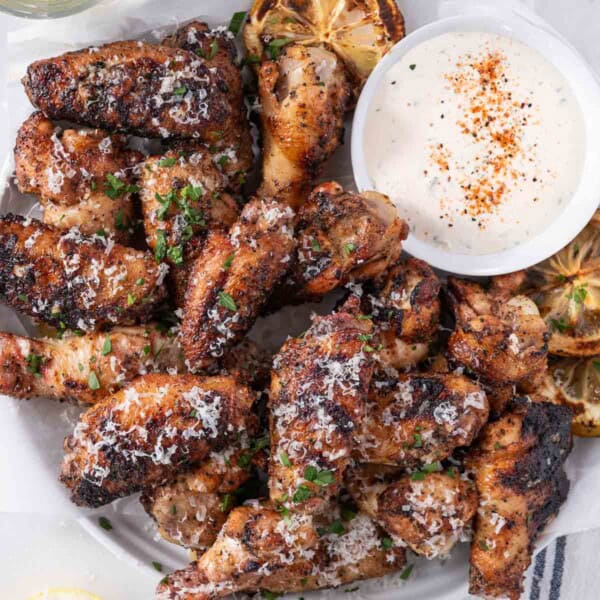

















Grilled chicken is very delicious and the aroma is very appetizing.
AMAZING!!!! I followed your tips, tricks, and recipe to a T and it was some of the best grilled chicken I have ever had. My friends were raving! Thank you!
What temp should the grill be at when grilling the chiken?
What temp should the smoker be at when smoking the chicken (low & slow)
i have a Big Green Egg
Steve, with a BGE we do it without the plate setter, and set up direct and indirect. The direct side is running about 400 degrees per the BGE thermometer. If you run the plate for low and slow, we run it at 250 when smoking chicken, up to 275.